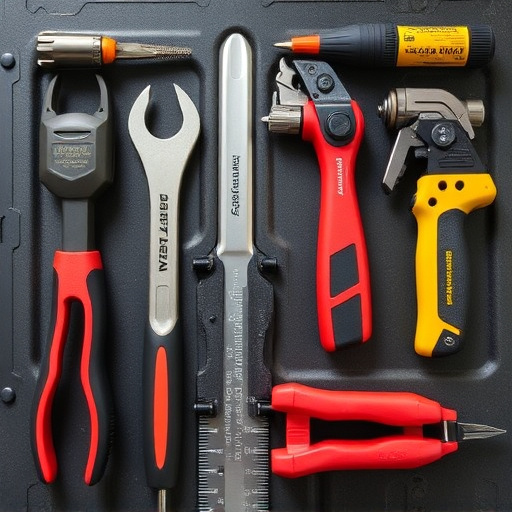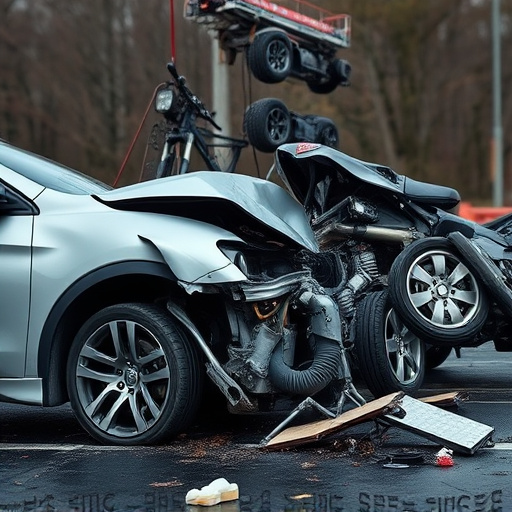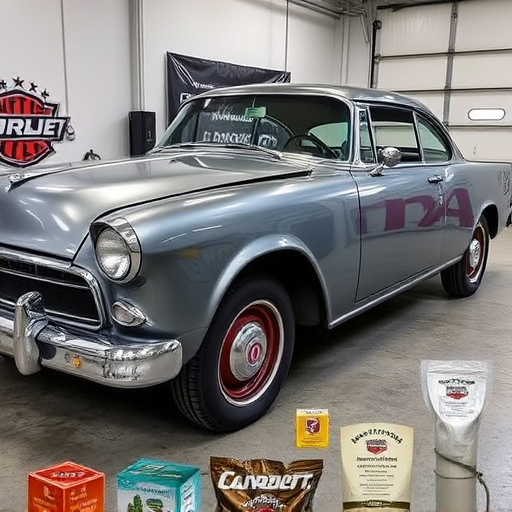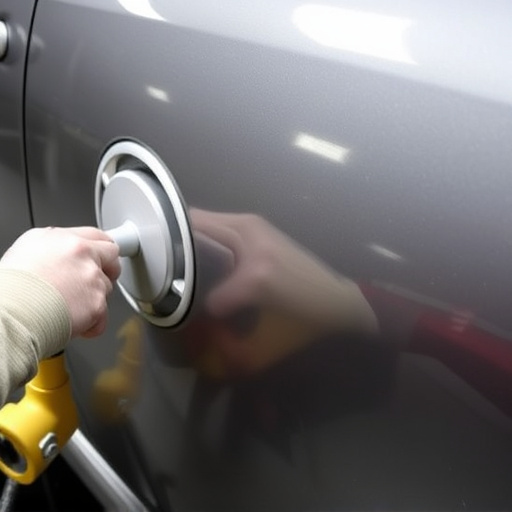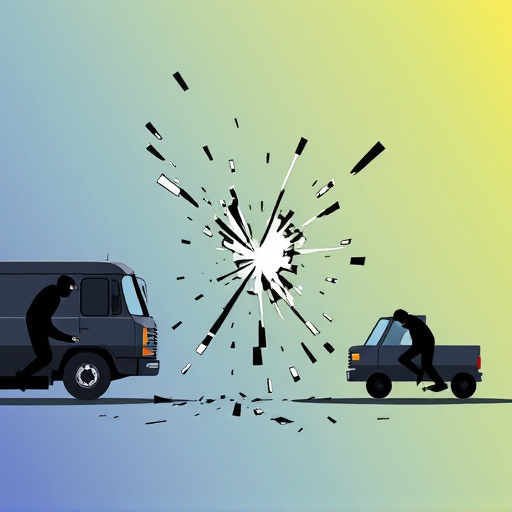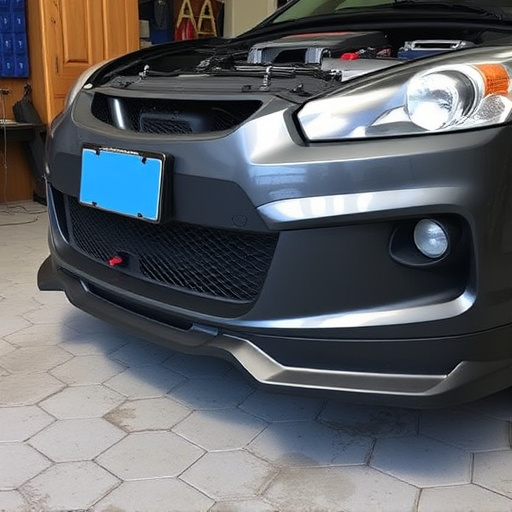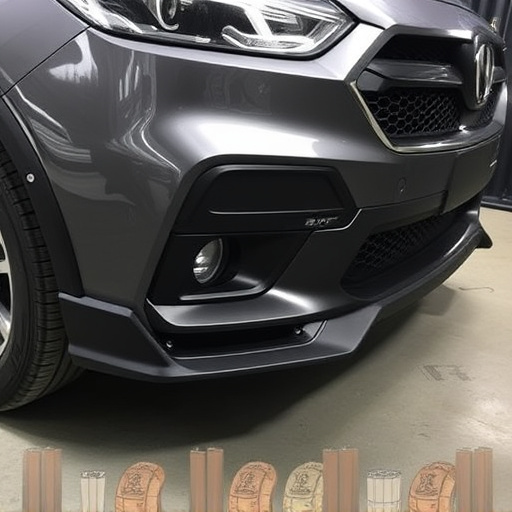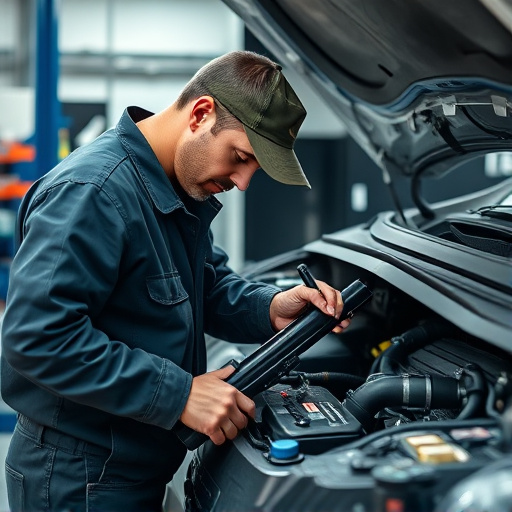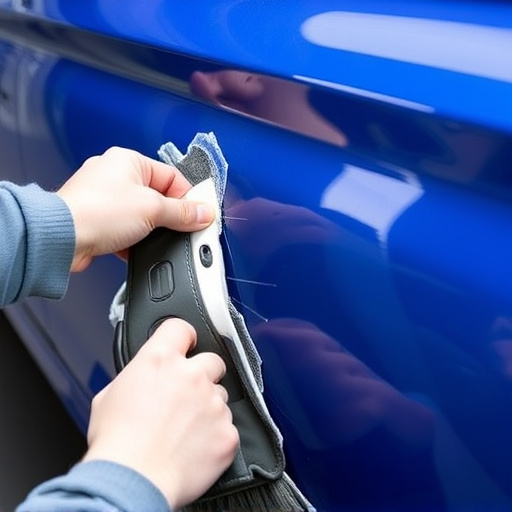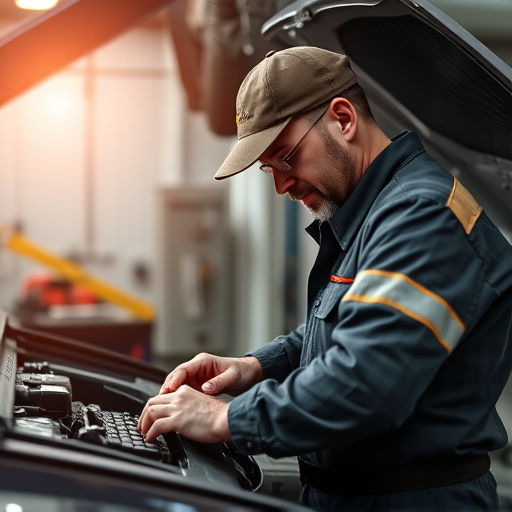A radiator replacement after an accident is crucial for maintaining a car's cooling system integrity. Damage during accidents can go unseen but impact the radiator's performance, leading to overheating issues. Proper installation and regular maintenance post-accident are essential to prevent further damage and ensure vehicle longevity by restoring optimal cooling system function.
A radiator replacement accident can disrupt your vehicle’s cooling system, leading to overheating and potential engine damage. Understanding the vital role a radiator plays in maintaining optimal temperatures is crucial. This article delves into the impact of accidental radiator replacements, highlighting why professional installation and post-accident assessments are essential. Learn strategies to restore efficient cooling, ensuring your vehicle’s longevity and safety on the road. Explore the key aspects of radiator replacement and its unforeseen consequences to prevent costly repairs.
- Understanding the Radiator's Role in Vehicle Cooling
- Impact of Accidental Radiator Replacement on Performance
- Strategies for Restoring Optimal Cooling System Function After an Accident
Understanding the Radiator's Role in Vehicle Cooling
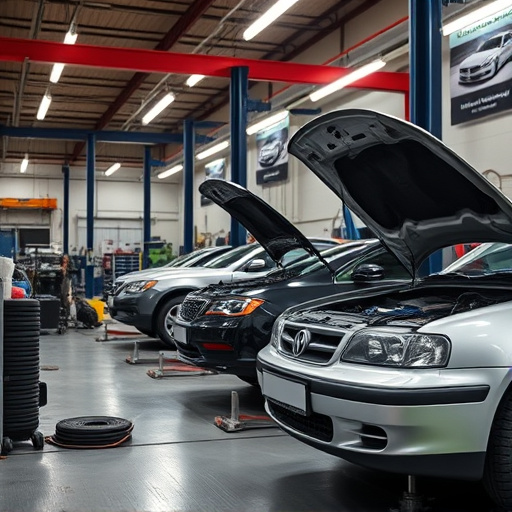
The radiator, nestled within your vehicle’s engine bay, plays a vital role in keeping your car cool. It acts as the primary component in the cooling system, facilitating heat transfer from the engine to the surrounding air. This process is crucial, especially during prolonged periods of acceleration or high-performance driving. A sudden radiator replacement accident can significantly disrupt this delicate balance.
In the event of a collision or accident, damage to the radiator is not always immediately apparent. However, it can lead to overheating issues, affecting the overall performance and longevity of your vehicle’s cooling system. This is especially true in bustling urban areas where frequent stop-and-go traffic puts additional strain on the engine and its cooling mechanisms. Consequently, a trip to a collision repair center for radiator replacement may become necessary, alongside comprehensive auto repair services to ensure your vehicle’s bodywork is also attended to effectively.
Impact of Accidental Radiator Replacement on Performance
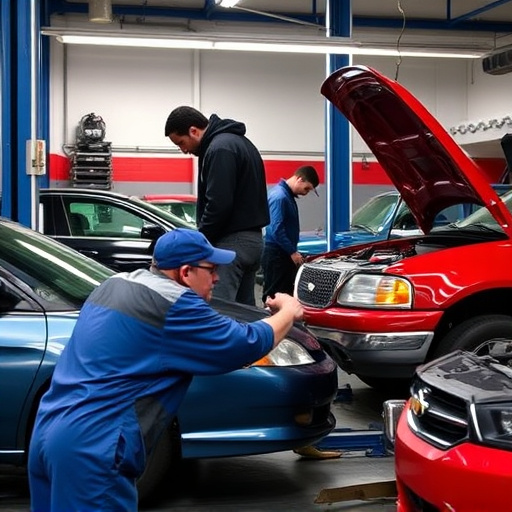
A radiator replacement accident can significantly impact the performance of a vehicle’s cooling system. During a collision or an accidental replacement, if the radiator is damaged or improperly installed, it can lead to overheating issues for the vehicle. This is because the radiator plays a crucial role in regulating engine temperature by dissipating heat from the coolant. A faulty or compromised radiator may result in reduced coolant flow, affecting the overall efficiency of the cooling system.
In a car body shop or luxury vehicle repair facility, technicians must exercise meticulous care during radiator replacement to ensure optimal performance and longevity of the vehicle’s cooling mechanism. Inaccurate measurements, incorrect parts selection, or haphazard installation can cause imbalances in the coolant circulation, leading to potential engine damage over time. Therefore, it is essential to prioritize proper maintenance and professional repairs to avoid complications arising from accidental radiator replacements.
Strategies for Restoring Optimal Cooling System Function After an Accident
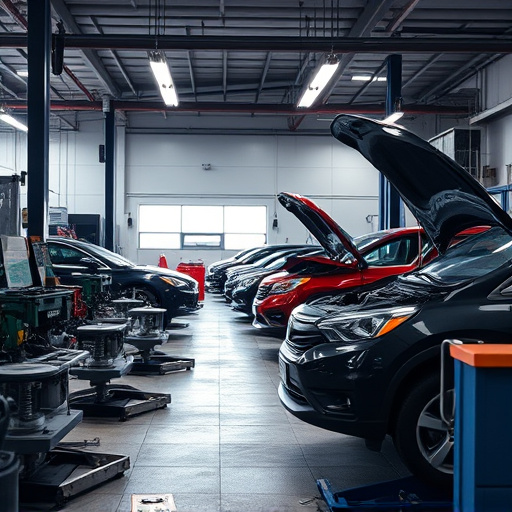
After a radiator replacement accident, restoring optimal cooling system function is paramount to prevent further damage and ensure the vehicle’s longevity. The first step in this process involves a thorough inspection of the entire cooling system, including the radiator, water pump, thermostat, and radiators. Identifying any leaks or damage is crucial; small cracks or punctures might have been overlooked during the initial repair. A professional vehicle body shop with expertise in both mechanical repairs and car paint repair can conduct comprehensive diagnostics to pinpoint issues.
Strategic interventions are then implemented based on the findings. If the radiator itself was damaged, a replacement is necessary. For minor dents or scratches affecting the exterior of the vehicle, car scratch repair techniques can be employed to restore its aesthetic appeal without compromising structural integrity. The cooling system’s efficiency is also optimized by checking and replacing any worn-out parts, such as hoses or gaskets. Regular maintenance checks after the accident are essential to ensure the system operates at peak performance, preventing future breakdowns and keeping the vehicle safe on the road.
A radiator replacement accident can significantly impact a vehicle’s cooling system, but with the right strategies, optimal function can be restored. Understanding the crucial role of the radiator in maintaining engine temperature and recognizing the effects of accidental replacements are key to preventing long-term damage. By following expert guidelines for repairs and maintenance, drivers can ensure their vehicles remain cool under pressure, preventing costly breakdowns and enhancing overall performance.


